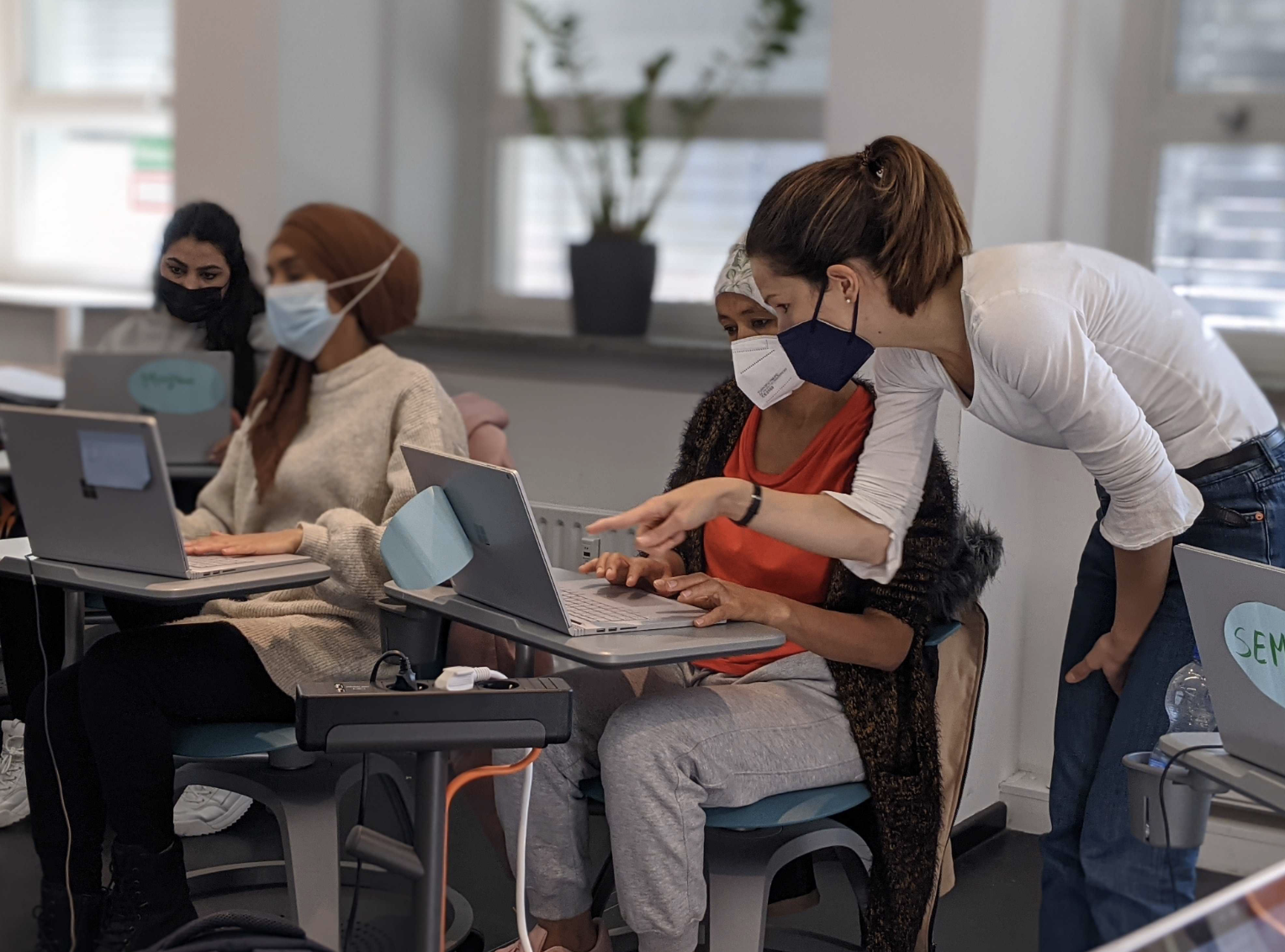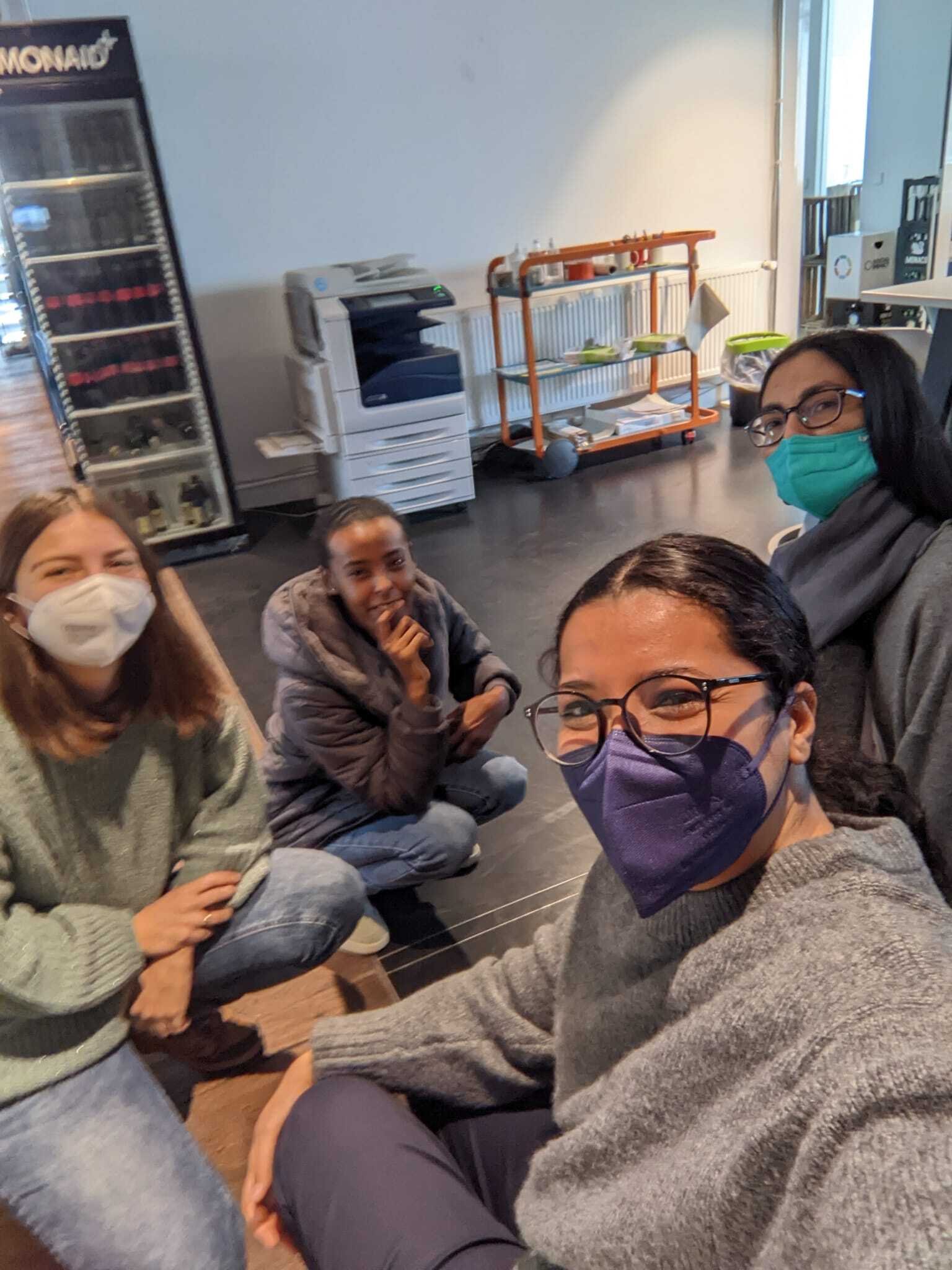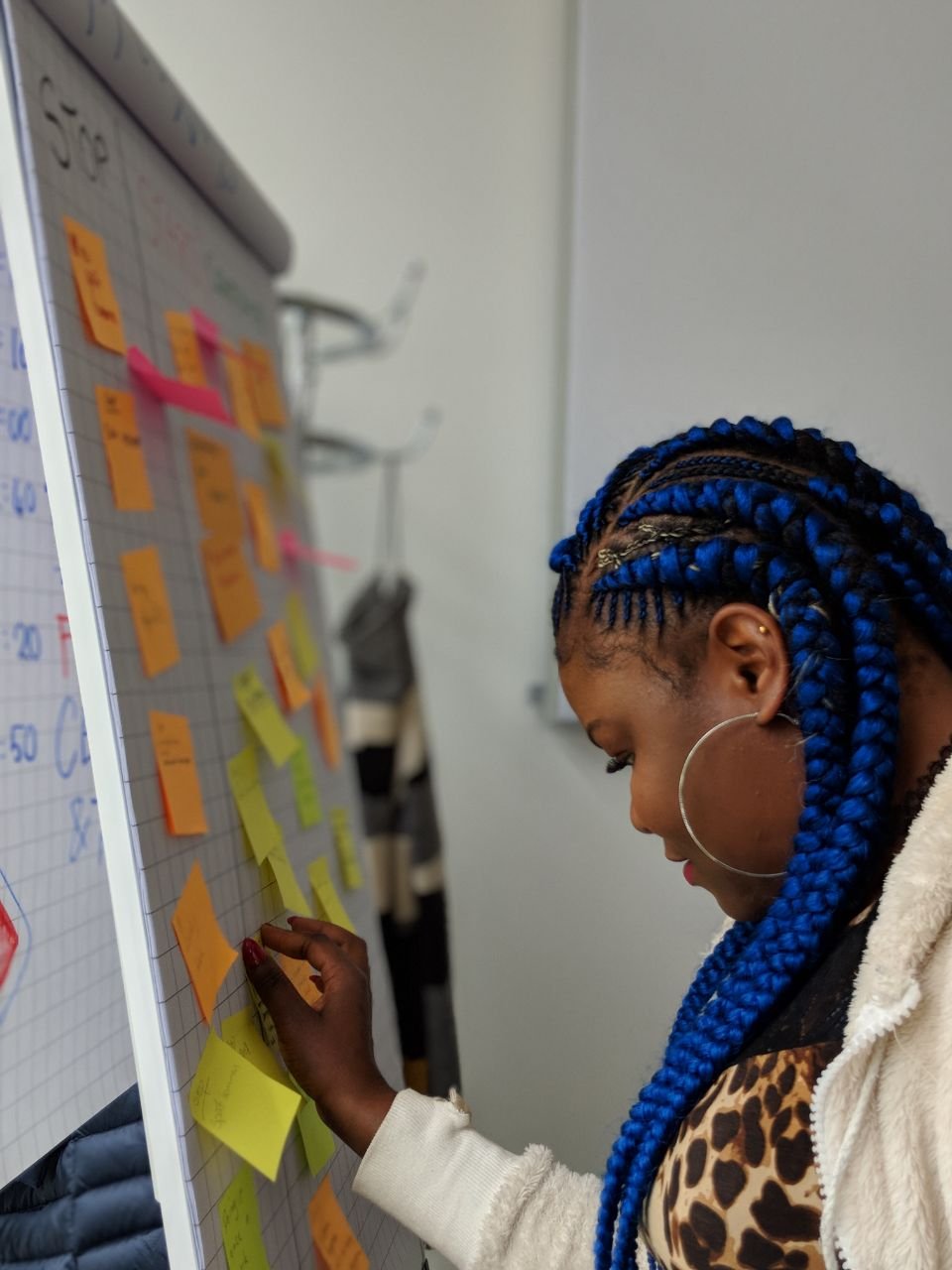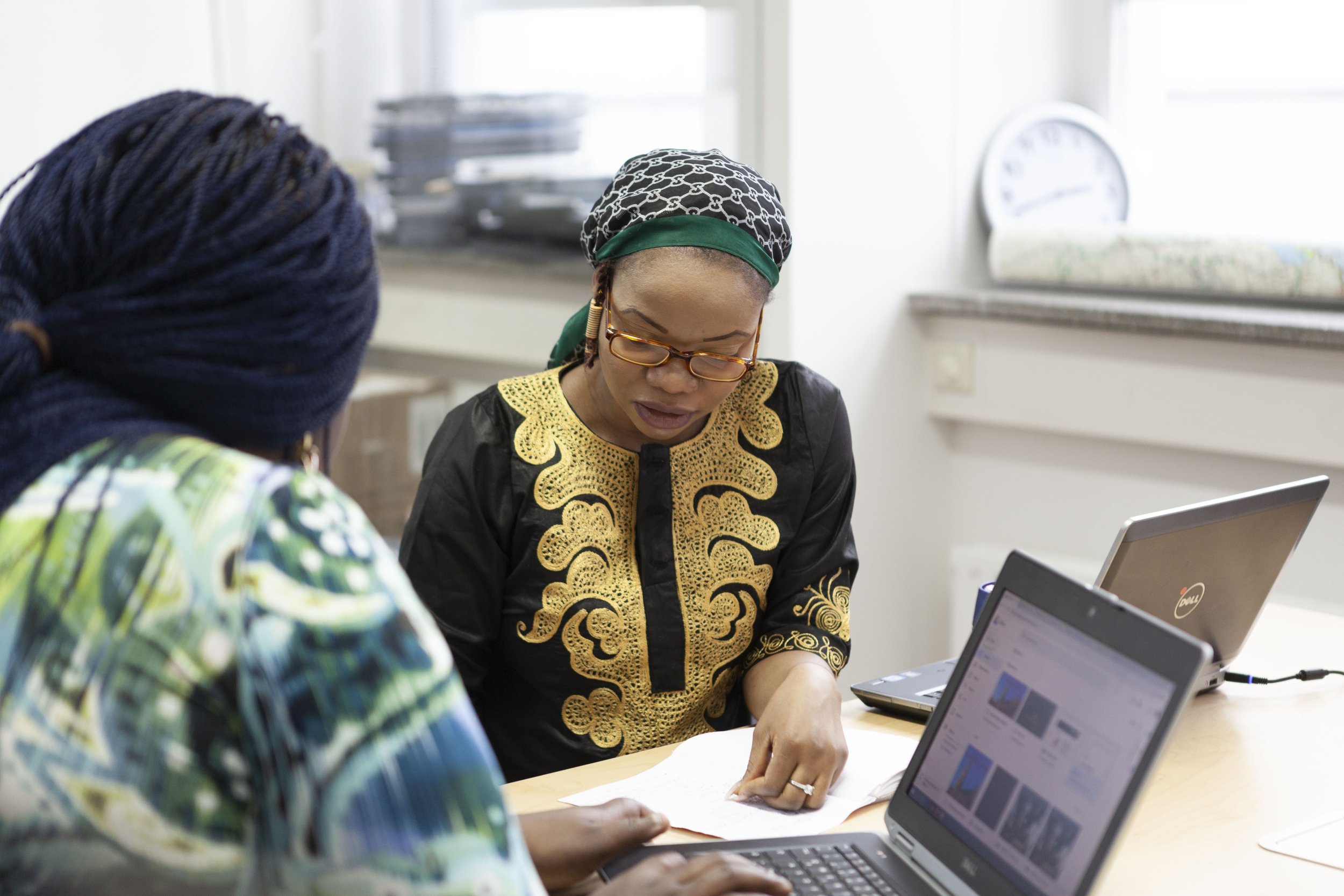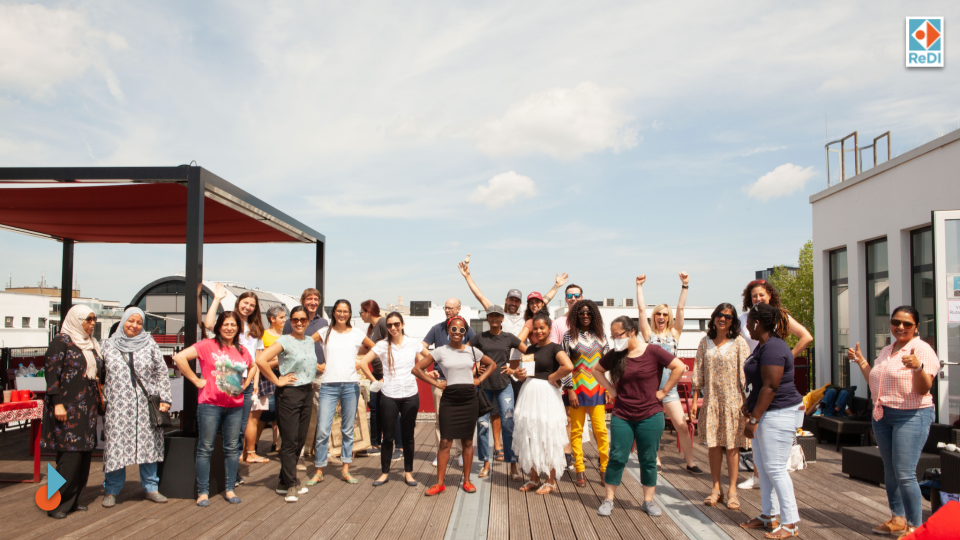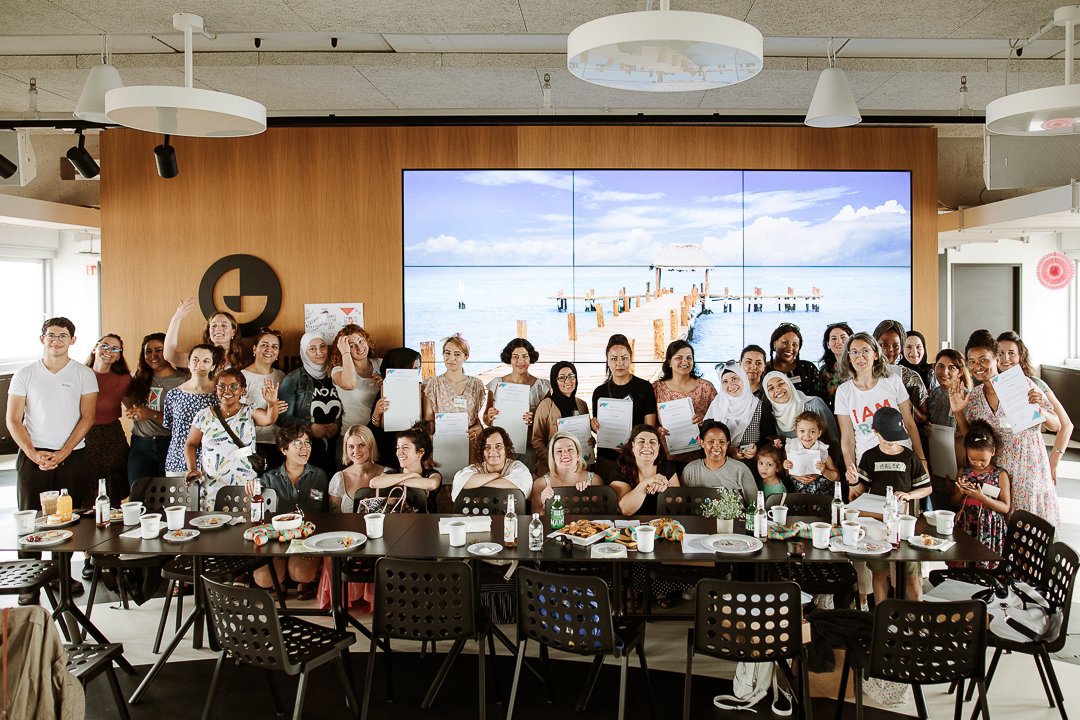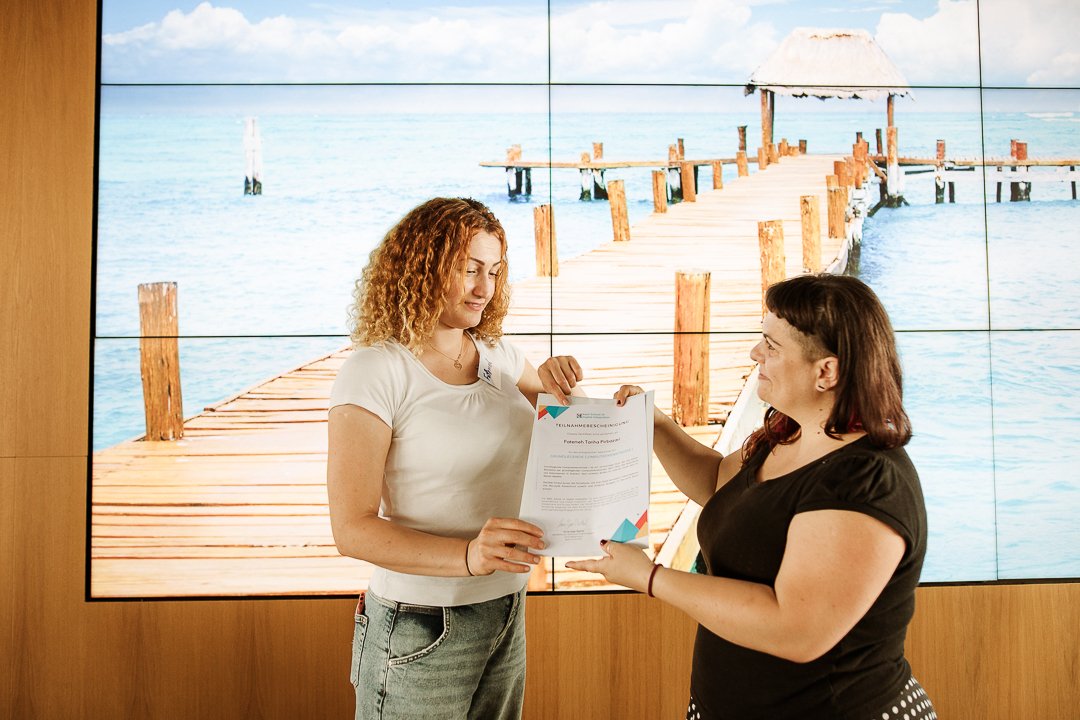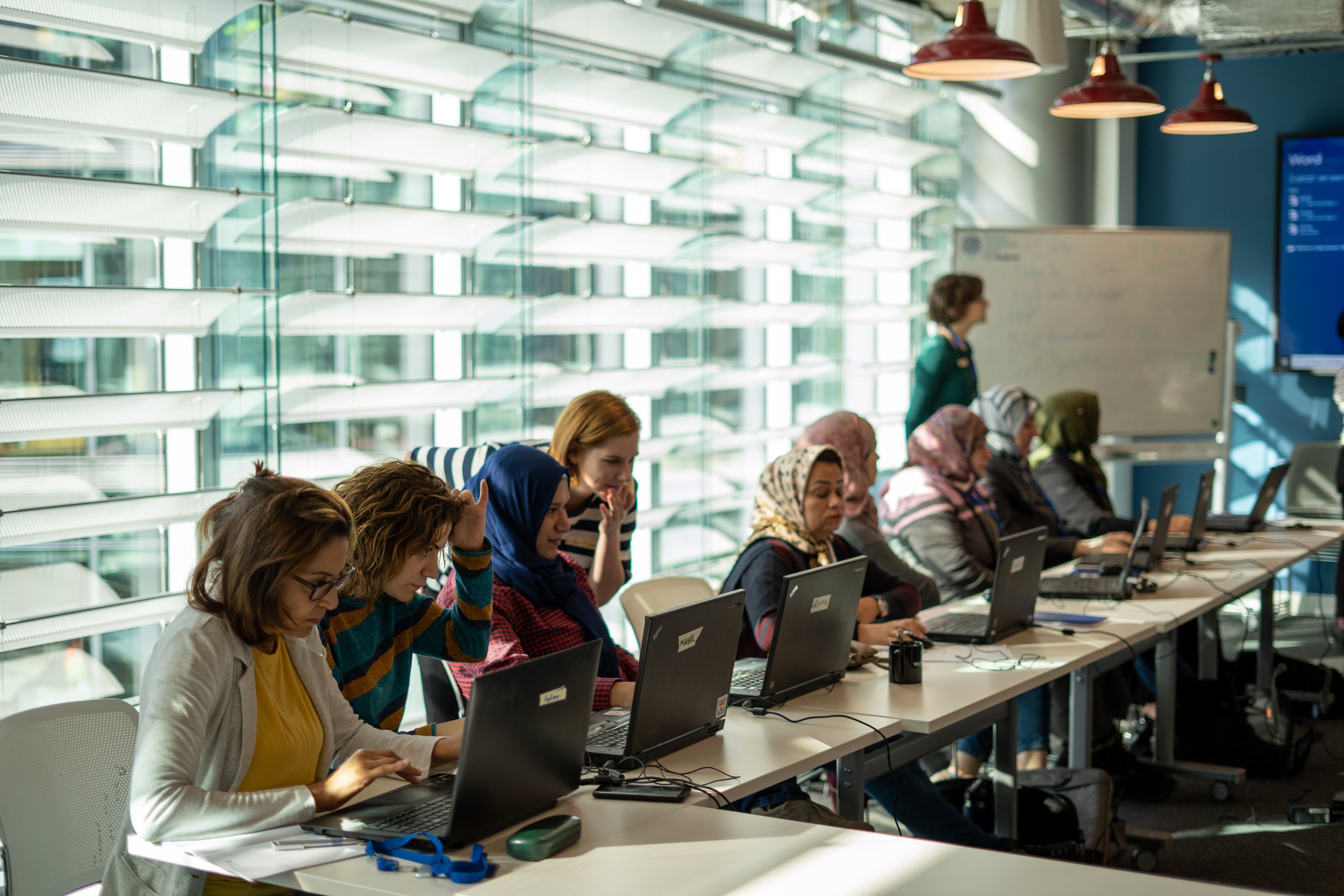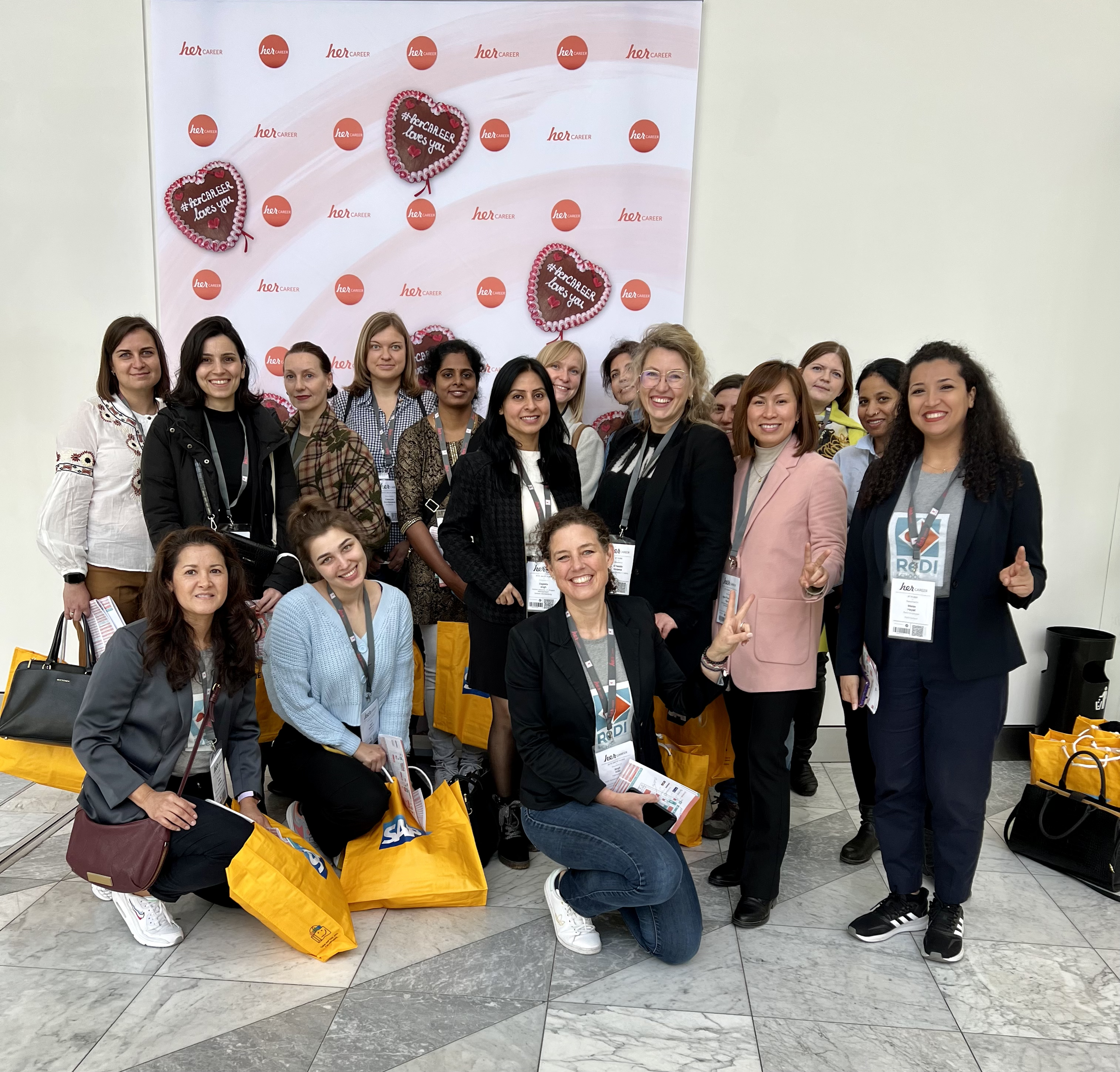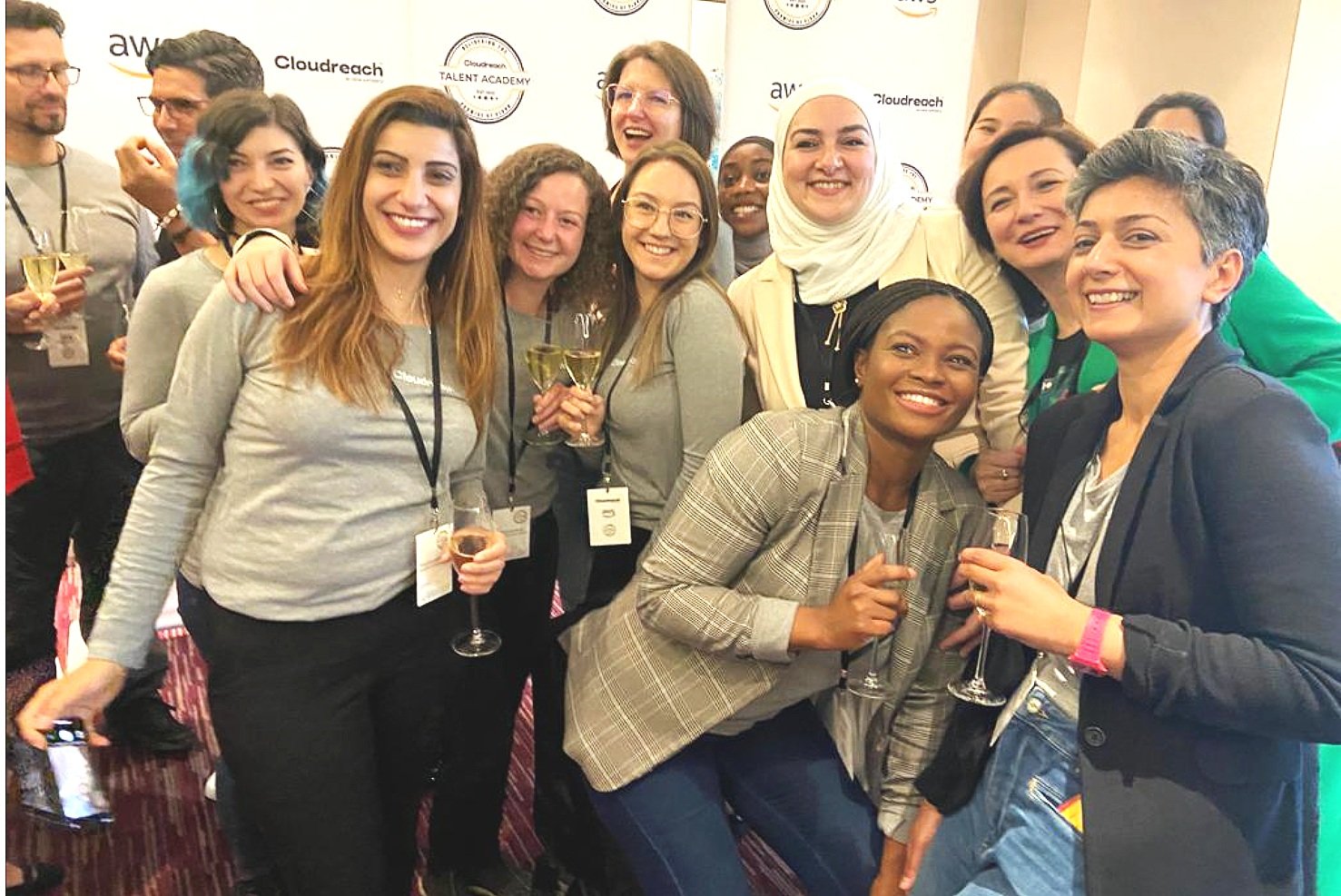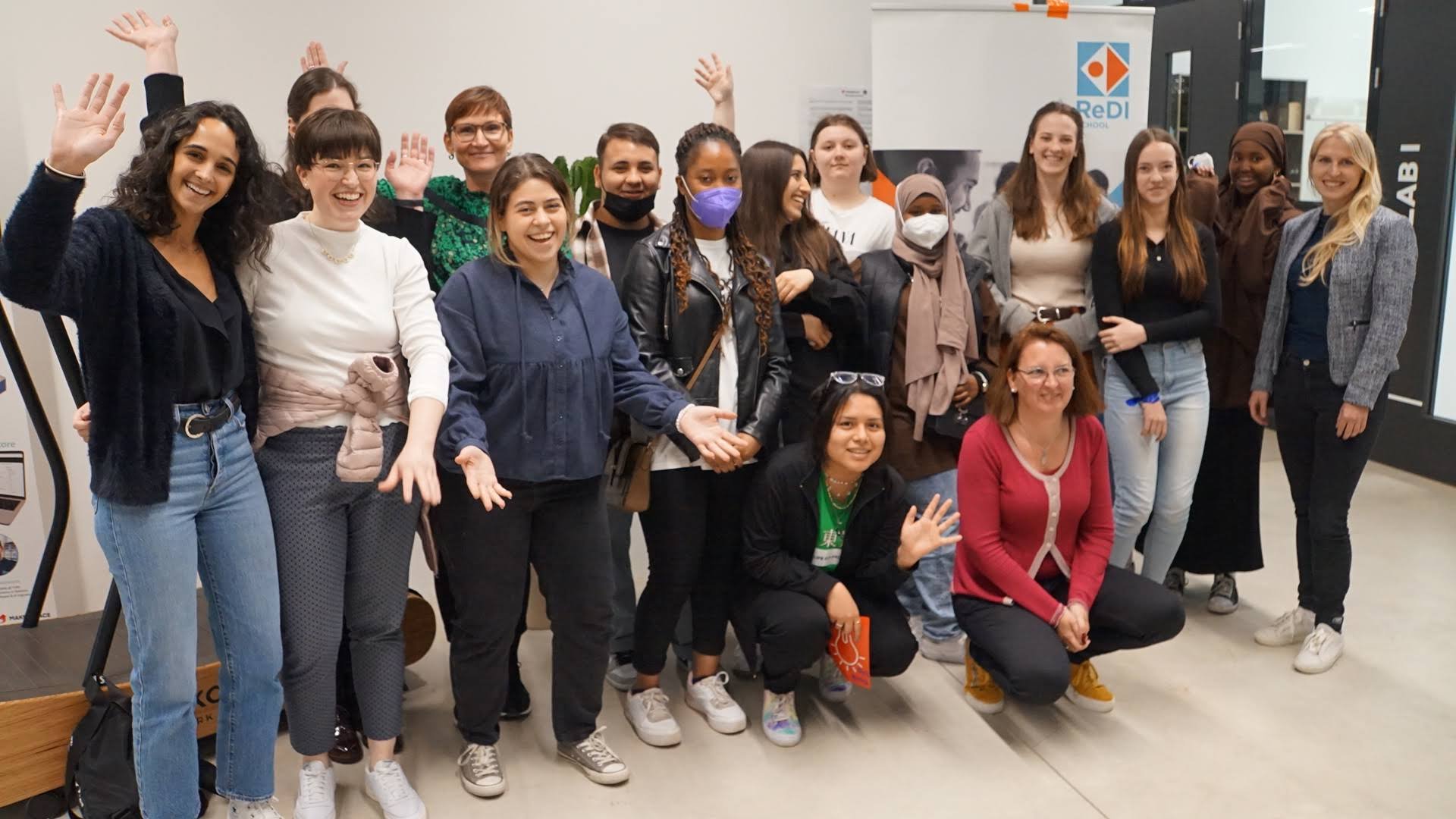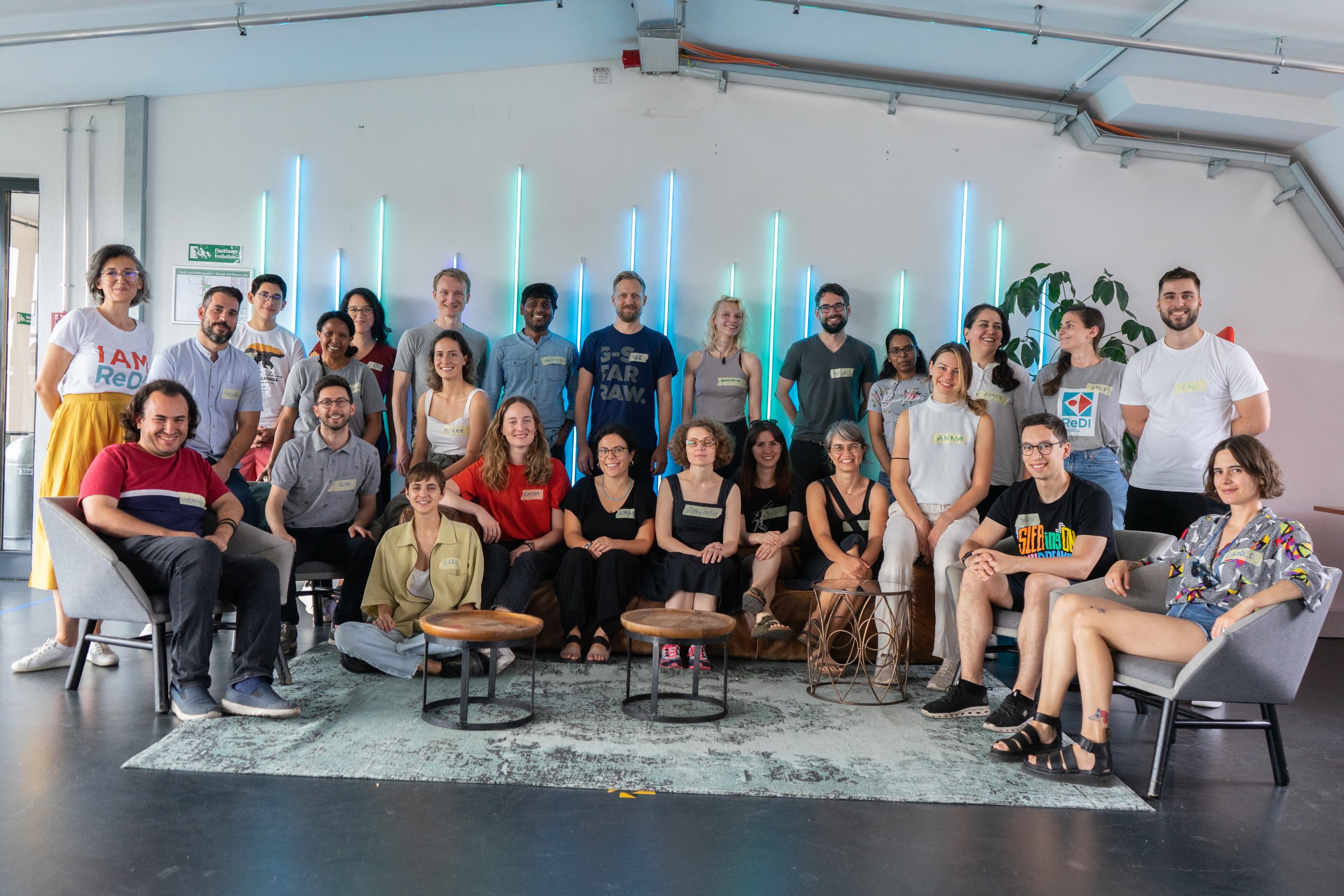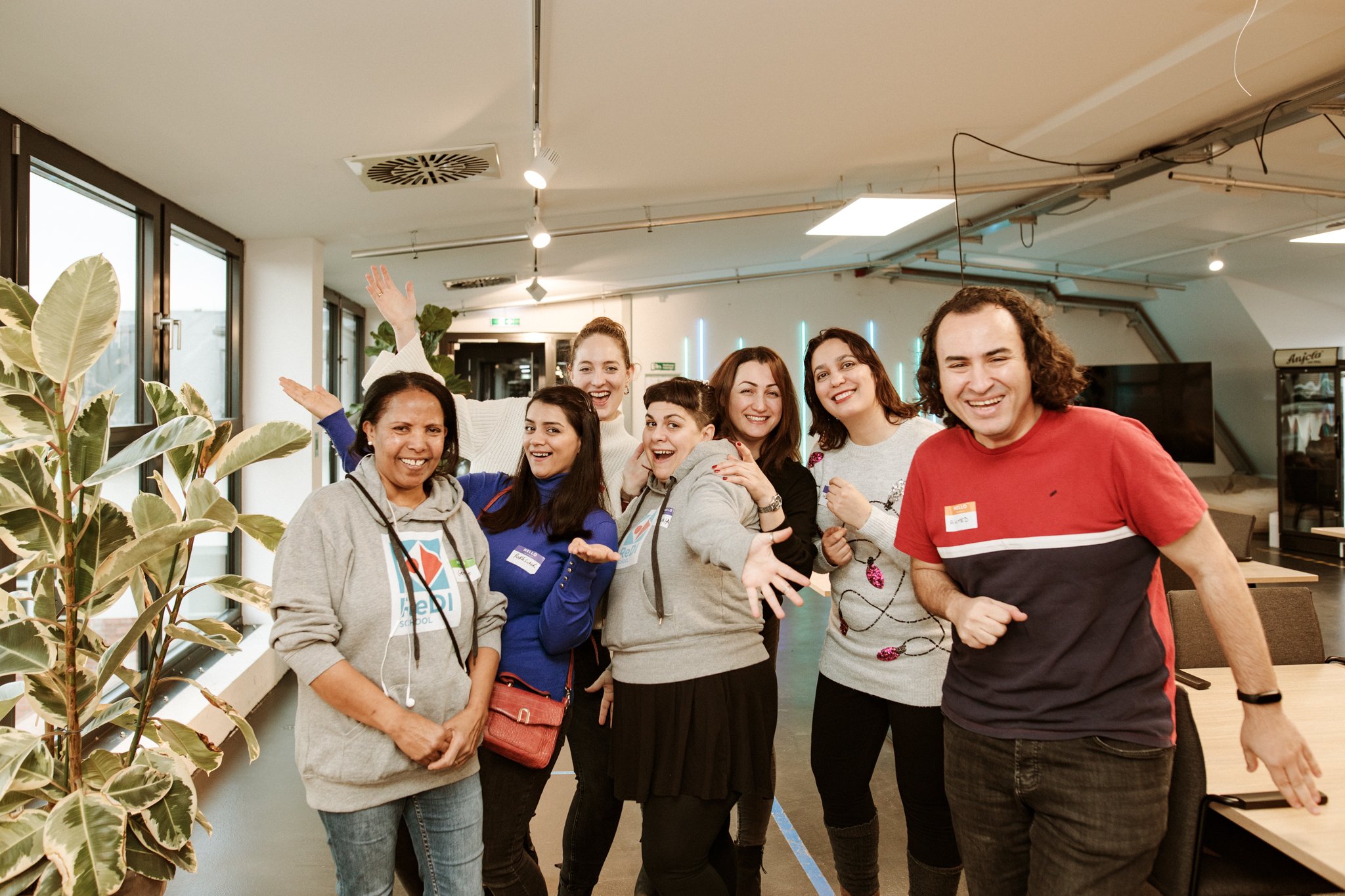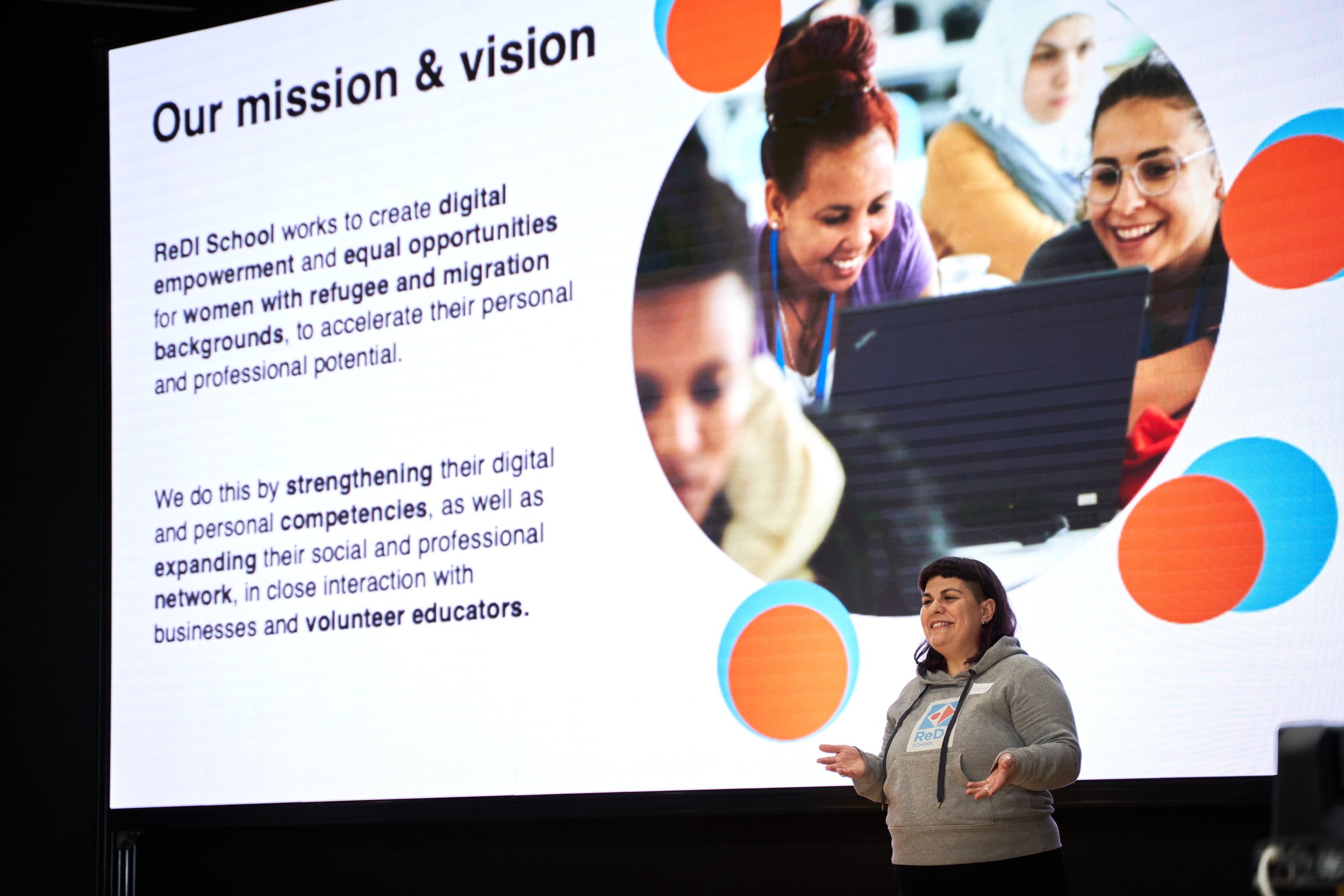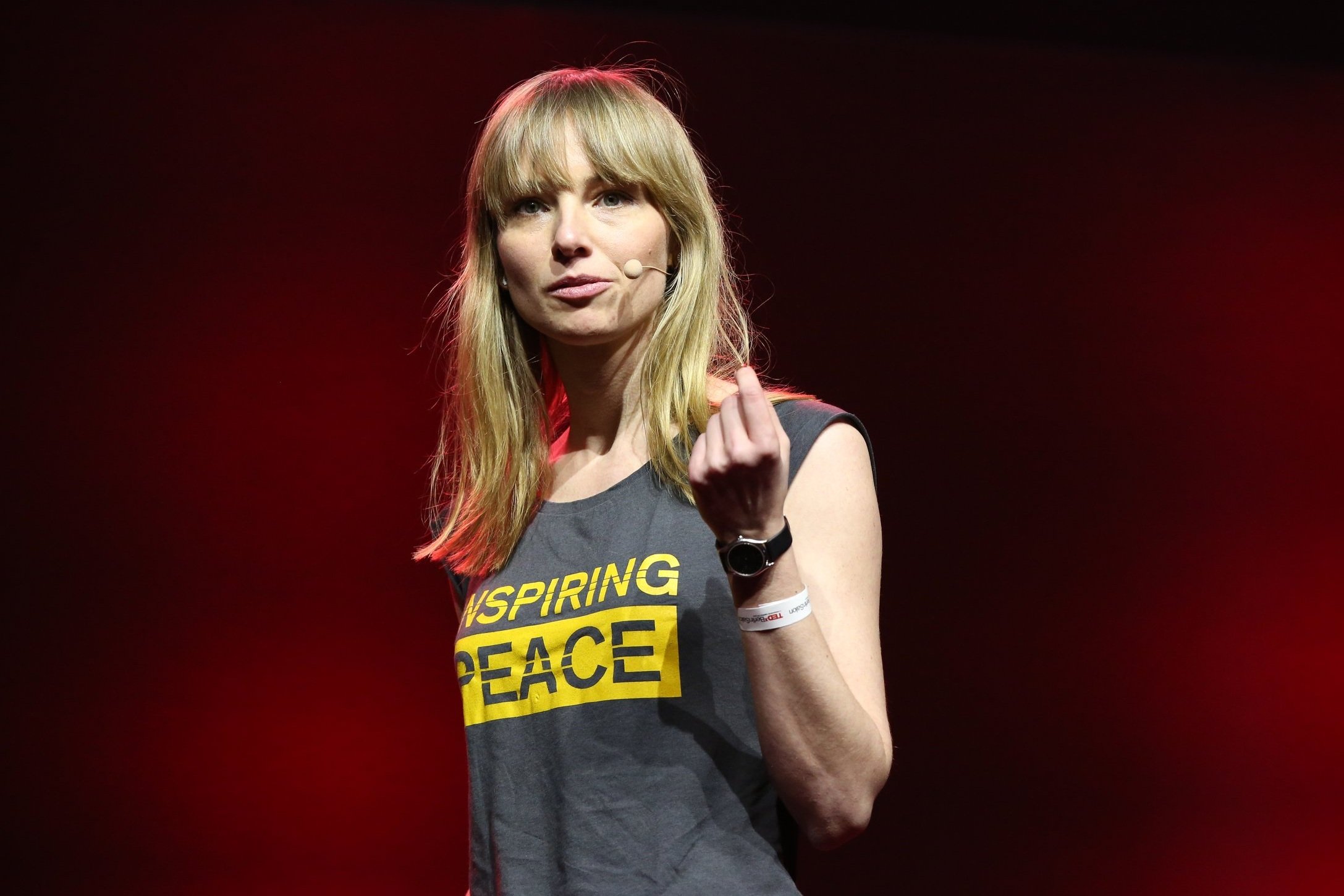A recipe for success: 10 steps to how ReDI School got to 65% female tech learners
Our CEO, Anne Kjaer Bathel describes how ReDI School went from 5% to 65% female participation in 7 years.
Labour Shortage in Germany - Diversity is Key
Germany is facing severe labour shortages in the IT-sector. 137.000 jobs as IT-professionals are currently open, according to Bitkom. At the same time, less than 17% of tech specialists in Germany are women, according to the German internet industry association, Eco.
On a European level women occupy 22% of all tech roles. The numbers recently (Jan. 2023) lead McKinsey to declare that the best bet to solve Europe’s talent shortage would be to bring more women in to tech. This would lead to a potential GDP increase of as much as €260 billion to €600 billion!
Diversity is Not Just Gender - Inclusion is Key
It is, however, not just women missing in the tech and startup sector. A 2019 Atomico survey of 1,200 European tech founders found that 84% identified as White/Caucasian and less than 1% as Black/African/Caribbean and only 1,6% as Middle-Eastern. A challenge for European competitiveness, when research shows, over and over again, that teams with high gender- and ethnic diversity are more innovative and resilient.
Motivation Leads To Action
With these numbers stacked up against us at ReDI School when we started our first courses in February 2016, it was no wonder that we only had 2 of our 42 students identifying as women (5%). Fast forward to 2022, we were reaching 5500+ students and 65% of those identified as girls or women. Did a miracle take place? No! This was the result of 7 years of strategic work, which has shown that change is possible, when we set our minds to it.
Here are 10 steps, which made a difference to us:
#1 Set a goal and measure against it
5% female participation in our first courses was by no means satisfactory to the ReDI School Team. We immediately set forth the big audacious goal of reaching 50% participants identifying as female in our courses. We didn’t know whether it would be possible, but we knew it was necessary and the right thing to do. And so, we went to work.
#2 Explore personas
ReDI School’s target group is asylum seekers, refugees, migrants with forced migration background. A diverse group in itself. We knew that from the beginning. It was therefore important for us to better understand who exactly we were talking about when saying we wanted more women at the school. In an interdisciplinary workshop we spent an afternoon defining 10 different personas of migrant women, from the single mother from Afghanistan who had been 7 years to school, to the single Iranian Ph.D. in her mid 30s. Both potential participants at the school, but with different strengths, needs, dreams and restrictions. From here we zoomed in on two key target groups: women in need of learning how to use a laptop and women wanting to switch careers to work in tech.
#3 Co-creation
The recipe for the success of ReDI School can be found in our founding principle that says “Stop talking about Refugees. Start talking with Refugees”. To increase the number of female participants at the school, the next thing we did was to invite women working in tech and migrant women interested in learning tech to a 2 hour co-creation workshop to identify the what, when, where and why’s of the courses.
#4 Change the content
One vital feedback we received was that the normal ReDI School courses teaching high-end-tech were too advanced for the women to apply to. One group of women clearly expressed a need to learn how to start using a laptop for their everyday life, such as online banking, writing job applications or writing e-mails and communicating with the school of their kids. Others, expressed a desire to make a shift in their career, mostly returning back to work after giving birth. As a result, ReDI School decided that creating a brand new, additional curriculum would be necessary to attract more female applicants.
#5 Timing is key
Another lesson learned is that women are busy! Finding time to invest in yourself and your own personal improvement through studying is a privilege. We soon realised that Saturday mornings was the time where most of the women had flexibility to invest a few hours to study. Since Sunday is a day of church for many of our Christian students from Sub-Saharan Africa, it was best to avoid it. Small details can make a big difference. The beauty is, one can always just ask!
#6 Child care
40% of the female students at ReDI School are mothers. So with childcare being a scarce necessity, especially in Berlin, it was of major importance to give the option to our learners to bring their kids along. ReDI School therefore decided to employ child carers to support the women who did not have family members or friends who could support them. In the beginning, all children were welcome, but we soon discovered that babies were requiring too much effort from the child carers, and we eventually decided that we had to narrow down child care to kids above 3 years of age.
Child Care at ReDI School - Photo By: Fjoralba Golicka
#7 Creating a safe space
The lack of confidence is a common denominator amongst many of our female learners when it comes to tech. Starting to learn something new means getting outside of your comfort zone and that can make new learners feel vulnerable and exposed. Feeling that you are in a safe environment, where you can make mistakes, try things out, ask for help and receive support has been key to attracting female learners. At ReDI School we knew that making all women-classes available would be one way to make our female learners feel at home. Another was to ensure we had as many female role models as well as volunteer teachers as possible. We also made sure to recruit several program assistants with a migration background to support us with community management.
#8 Pilot courses
The next thing we did was sketching out two 4-week tracks: one for beginners and one for more digitally experienced women. The short courses gave us a perfect opportunity to “learn” by doing”. The evaluation and feedback we received from our volunteer teachers and participants then informed how we eventually designed the 12-week courses, which we would call “ReDI Digital Women Program”.
#9 Building learning paths
Once the 12-week courses were implemented, the question of course became, “What’s next?”. For the beginners, we designed three stackable introduction courses teaching the students how to use a laptop and building up their skills and confidence towards starting vocational training in Germany.
For the more experienced female students, studying Python, UX & UI or Introduction to Coding, the ambition was that the graduates would be able to continue their learning paths in ReDI School’s (mixed) Digital Career Program, preparing the students for future internships or jr. positions. With the steady rise of participants in our “ReDI Digital Women Program”, we soon started seeing the number of female participants rising in our mixed high-end-tech courses too. In the Autumn 2022 semester, across all locations in Germany between 49 and 51% of our learners in the “Digital Career Program” identified as female!
#10 Finding the right partners
ReDI School would not have been able to succeed in bringing up the number of female students, had it not been for the continuous support we have received from Facebook (now Meta) who supported our first pilot program for women back in 2017, or the Coca-Cola Foundation, which stepped in first with 3-years of funding to ensure that the program could continue and develop. Then came the support of the Municipality of München and the support from Post-Code Lottery, which allowed us to scale the program to Munich. Then the support from L’Oreal Fund for Women, which allowed us to scale the program to North-Rhein Westfalia. Coca-Cola Foundation, based on the successful results in Germany, then supported expanding the program first to Denmark and then to Sweden, where Microsoft joined in as well. In 2022 Cisco, Toshiba and Capgemini stepped up, to ensure that we could extend the program to women and kids fleeing the war in Ukraine. JP Morgan Chase Bank, Beiersdorf and the German Ministry of Women, Families & Seniors stepped in to ensure further career programs for our female learners.
We Could Not Do This Without You
One thing we have certainly learned is that it takes a dedicated team, outstanding teachers and a network of committed partners: companies, foundations, municipalities and ministries to make change happen, but it is possible. Much more support is however still needed if we want the ReDI Women Program to sustain and expand to Hamburg and beyond.
“Stop talking about Refugees. Start talking with Refugees.”
Anne Kjaer Bathel
Written By: Anne Kjaer Bathel
CEO & Co-Founder, ReDI School of Digital Integration
If you are interested in supporting ReDI School, find out more here.



